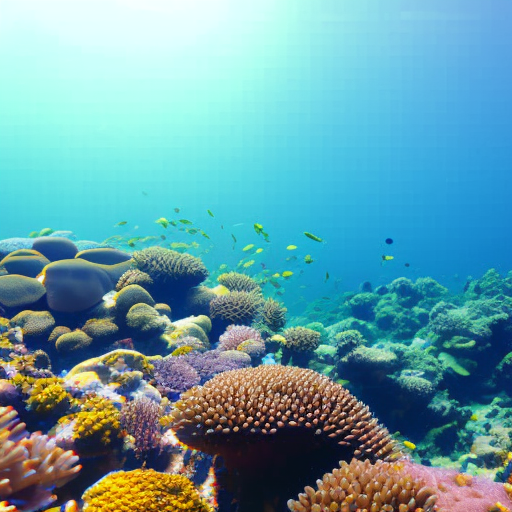Summary:
Marine conservation is the protection and preservation of marine ecosystems and biodiversity. It involves various strategies and initiatives aimed at reducing human impacts on the oceans and ensuring the sustainable use of marine resources. These efforts are crucial in maintaining the health and resilience of marine ecosystems, as well as safeguarding the numerous benefits they provide to both humans and the planet.
Importance of Marine Conservation:
Marine ecosystems are home to a wide array of species, including fish, corals, marine mammals, and plants. They provide essential services such as food, oxygen production, climate regulation, and carbon sequestration. However, human activities, such as overfishing, pollution, habitat destruction, and climate change, have put these ecosystems at risk. Marine conservation is vital to mitigate these threats and ensure the long-term survival of marine life.
Strategies for Marine Conservation:
1. Marine Protected Areas (MPAs): MPAs are designated areas where human activities are restricted or prohibited to protect marine biodiversity and habitats. They serve as sanctuaries for marine species, allowing them to reproduce and replenish populations.
2. Sustainable Fisheries Management: Overfishing is a significant threat to marine ecosystems. Implementing sustainable fishing practices, such as setting catch limits, regulating fishing gear, and promoting responsible fishing practices, helps maintain fish populations and preserve the balance of marine ecosystems.
3. Pollution Control: Reducing pollution from land-based sources, such as agricultural runoff, industrial waste, and plastic debris, is crucial for marine conservation. Implementing stricter regulations, promoting recycling and waste management, and raising awareness about the impacts of pollution can help mitigate these threats.
4. Climate Change Mitigation: Climate change is causing rising sea temperatures, ocean acidification, and sea-level rise, which have severe consequences for marine ecosystems. Reducing greenhouse gas emissions and transitioning to renewable energy sources are essential steps in combating climate change and protecting marine biodiversity.
5. Conservation of Critical Habitats: Protecting and restoring critical marine habitats, such as coral reefs, mangroves, and seagrass beds, is vital for maintaining biodiversity and supporting the resilience of marine ecosystems. These habitats provide essential breeding grounds, nurseries, and feeding areas for numerous species.
Benefits of Marine Conservation:
1. Biodiversity Preservation: Marine conservation efforts help protect and preserve the rich biodiversity found in oceans, ensuring the survival of various species and maintaining the balance of ecosystems.
2. Sustainable Fisheries: Implementing sustainable fishing practices and protecting critical habitats can help maintain fish populations, ensuring a sustainable supply of seafood for future generations.
3. Climate Regulation: Healthy marine ecosystems play a crucial role in regulating the Earth’s climate. Oceans absorb and store large amounts of carbon dioxide, helping mitigate climate change.
4. Economic Value: Marine ecosystems provide numerous economic benefits, including tourism, recreational activities, and the fishing industry. Protecting these ecosystems ensures the long-term sustainability of these industries.
5. Human Well-being: Oceans provide essential resources such as food, medicine, and livelihoods for millions of people worldwide. Marine conservation helps safeguard these resources, ensuring the well-being of coastal communities.
In conclusion, marine conservation is essential for protecting the health and resilience of marine ecosystems. By implementing strategies such as marine protected areas, sustainable fisheries management, pollution control, climate change mitigation, and habitat conservation, we can ensure the long-term survival of marine biodiversity and the many benefits it provides to both humans and the planet.












